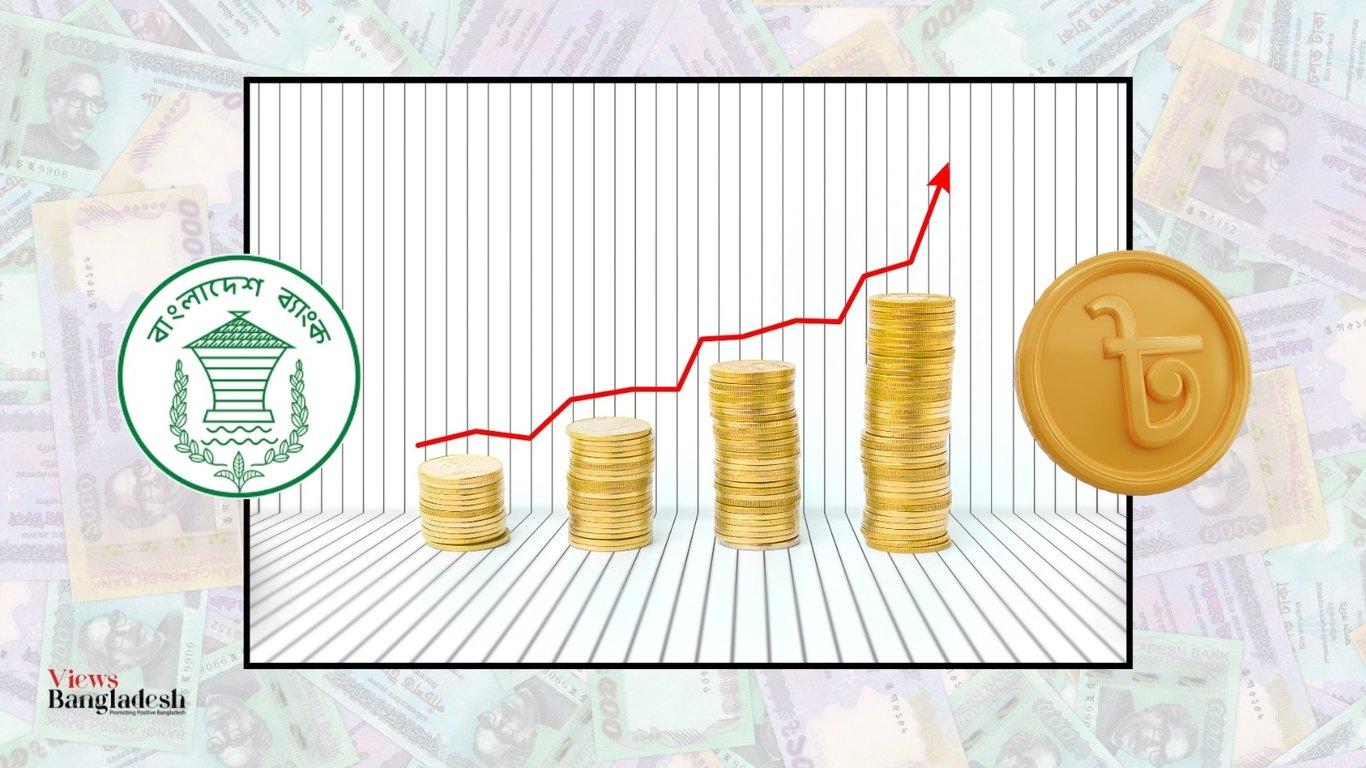Reducing inflation is much more difficult than controlling protests

According to the Awami League general secretary, reducing inflation is more important for the new government than focusing on the opposition movement; but reducing inflation is much more difficult than controlling protests. The government and the Bangladesh Bank are not following Sri Lanka's path to reduce inflation, as discussed extensively in various knowledgeable discussions in prominent newspapers and talk shows. Listening to these discussions, it seems that bring inflation down is very easy; we just need to implement the suggestions of economists and talk show experts.
Their opinion is that policymakers in Bangladesh do not understand economics well, so the current policies formulated by them will not yield favorable results for the country's economy. Many of them argue that political influence outweighs economic considerations in their decisions. Most economists' policy suggestion is to increase interest rates. They argue in favor of raising the Bangladesh Bank's 'reference rate' to tackle inflation. It seems to them that the interest rate should be increased so much that no one approaches the bank for a loan. They have been urging the Bangladesh Bank to stop printing currency notes for so long because they fear that all the printed money is being taken by the government. However, in the first six months of the fiscal year 2023-24, the government did not take a single taka from the Bangladesh Bank. Instead, the government has paid off the previous outstanding debt of 36 thousand crore taka.
Seeing this statistic, economists have now changed their tune, saying that all the printed money is being taken by Islamic banks. However, if necessary, they will still have to take back the printed money. Providing funds to the government and other commercial banks when needed remains one of the Bangladesh Bank's key functions. If any scheduled bank encounters a liquidity crisis, it will turn to the central bank for assistance. The central bank will not only provide liquidity during a liquidity crisis but also analyze the reasons behind the crisis. In the current fiscal year, the government has borrowed 27,952 crore taka from commercial banks. Due to the government's borrowing from commercial banks, the ability of private sector banks to provide loans may diminish. However, this could also lead to a reduction in inflation. Those who always cite Sri Lanka's economic revival as an example and attribute Bangladesh government or central bank failures must surely know that Sri Lanka's success in reducing inflation is not solely due to policy makers' efforts; it is somewhat self-driven. In the case of overcoming Sri Lanka's economic stagnation, it hasn't been necessary for the government or central bank to demonstrate exceptional intelligence. Because the revival of the tourism sector after the COVID-19 pandemic plays a significant role in strengthening Sri Lanka's economy.
On the other hand, Sri Lanka's new government has addressed the mistakes of the previous administration by encouraging the use of chemical fertilizers and pesticides in agriculture, leading to a significant increase in agricultural production. Additionally, despite increasing VAT rates, the government's revenue has also increased due to reduced tax concessions in various sectors. The government's rectification of these errors has been supported by the IMF, World Bank, and international community, which has helped restore confidence among businesses. As a result, Sri Lanka's exports have increased, industrial production has risen, loans have been obtained from the IMF, and remittances have also grown. Export of large number of skilled manpower contributed to Sri Lanka's 76 percent increase in remittances after Corona. Sri Lankans are highly educated, proficient in language, and adept in technology, making them more advanced compared to Bangladesh. Sri Lanka's encouragement contributes to the increase in remittances. However, the sole reason behind the growth in remittances is not encouragement; rather, it is the sense of patriotism among Sri Lankan expatriates. Both supporters and opponents of the government are sending dollars to the country to aid in its recovery from economic challenges.
Bangladesh Bank also contributes to encouragement; however, our remittances are not increasing. The reason for this stagnation is not the exchange rate of the dollar, but rather, the concerted negative propaganda against the government, the economy, and the banking sector. A coordinated cycle has been devised to send money through hundi, bypassing the banking channels, weakening the government and working both domestically and internationally. However, Bangladesh's overall economy is much stronger than Sri Lanka's. Sri Lanka's foreign currency reserve is only $4 billion, and by 2027, Sri Lanka will have to repay $28 billion in foreign debt. On the other hand, Bangladesh's foreign currency reserve is $25.23 billion, or alternatively $20.02 billion. We also have foreign debt repayments to make. The decline in reserves is due to higher expenses compared to dollar earnings.
Another reason our remittances are not increasing is the extensive demand for foreign currency in the black market, which leads to extensive devaluation of the currency. Due to this extensive demand, increasing remittances through banking channels is not possible. The reasons are bribery and corruption, under-invoicing, medical treatment abroad, tuition fees—all of these are regularly smuggled through illegal channels from the country. Selling permanent assets also contributes to a continuous drain of funds by those permanently leaving the country. Thousands of people are traveling to India, Thailand, Singapore, and other countries for entertainment and shopping purposes—most of them have bank accounts abroad. Dollars from bribery and over-invoicing are regularly deposited into their accounts. Even pilgrims are seen purchasing dollars and riyals from the black market every year. Therefore, it seems unlikely that implementing a floating exchange rate would increase remittances or prevent financial smuggling.
The Argentine peso has been repeatedly devalued in an effort to increase foreign exchange reserves, but to no avail. The official exchange rate of the dollar is 238.5 pesos, while the black market’s exchange rate is 474.00 pesos. Inflation in Lebanon was 170 percent in 2022, has since declined slightly, but inflation in Argentina currently stands at 230 percent due to the devaluation of the Lebanese pound on the advice of economists to boost remittances. Almost all our products except bricks or sand have to be imported at a cost of dollars. In the fiscal year 2022-23, despite a 16 percent reduction in imports, our import expenditure has reached $75.06 billion. On the other hand, we received $55.55 billion and $23 billion through exports and remittances respectively. Thus, expenditure is being managed by the income from both accounts. Before the Russia-Ukraine war, the exchange rate for the dollar was 85 taka. Now it has risen to 110 taka. As a result, due to the devaluation of the currency alone, the price of something that was previously 85 taka has now risen to 110 taka.
On the other hand, due to the increase in prices of commodities in the international market, prices have also risen in our market. If the two mentioned factors are not addressed, inflation will not decrease. To alleviate the pressure of inflation and provide relief to poor families, the government is selling commodities at lower prices in the open market. Apart from this, 1 lakh crore taka are being subsidized in various fields, thousands of destitute families are being provided free of cost essential items under the social safety net. This activity of the government should be increased if necessary. The National Board of Revenue has already reduced the tax rates on several essential commodities. It's good news that revenue collection has been steadily increasing over the past few years. Comparing the first five months of the current fiscal year with the same period of the previous fiscal year, revenue collection has increased by 14.27 percent. As revenue collection increases, the government's dependency on loans and inflation decreases. Under the current leadership of the Chairman of the National Board of Revenue, further improvements in revenue collection are possible.
According to the advice of economists, if the interest rate is excessively increased, it will shrink investment and the purchasing power of the people, which will have an impact on the country's economic activities and employment. If there is stability in the country's economy, the number of unemployed people will increase, industrialization will slow down, production will decrease, and development activities will be hampered. Further devaluation of the currency will exacerbate inflation. The gradual decline in foreign currency reserves is a cause of concern for us. Seventy percent of the country's total foreign currency reserves come from exports, 28 percent from remittances, and the remaining 2 percent from foreign investments, loans, and other accounts. Eighty percent of our export earnings come from the garment sector, so there is limited opportunity to significantly increase export earnings.
Many countries heavily rely on tourism for foreign currency. Cox's Bazar is the world's longest sandy sea beach. However, the lack of sustainable environment and security does not attract foreign tourists. Therefore, our earnings in the tourism sector are almost negligible in terms of foreign currency. In 2023, India earned $125 billion in this account, the Philippines earned $40 billion, while our remittance was only $23 billion. To increase remittances, it is essential to crack down on misinformation and gossip spread across various news portals. It is also crucial for the National Board of Revenue, Bangladesh Bank, and commercial banks to enhance their vigilance against activities such as under-invoicing and over-invoicing, including the practice of hundi.
On the other hand, Bangladesh will need to borrow at lower interest rates from institutions such as the World Bank, IMF, Asian Development Bank, and JICA. Efforts to increase foreign investment must remain uninterrupted. Measures should be taken to facilitate the deposit of dollars into Bangladesh Bank accounts from countries like China or Saudi Arabia, similar to what is observed in Pakistan.
Author: Former Executive Director, Bangladesh Bank and Former Managing Director, Mint.


Leave A Comment
You need login first to leave a comment